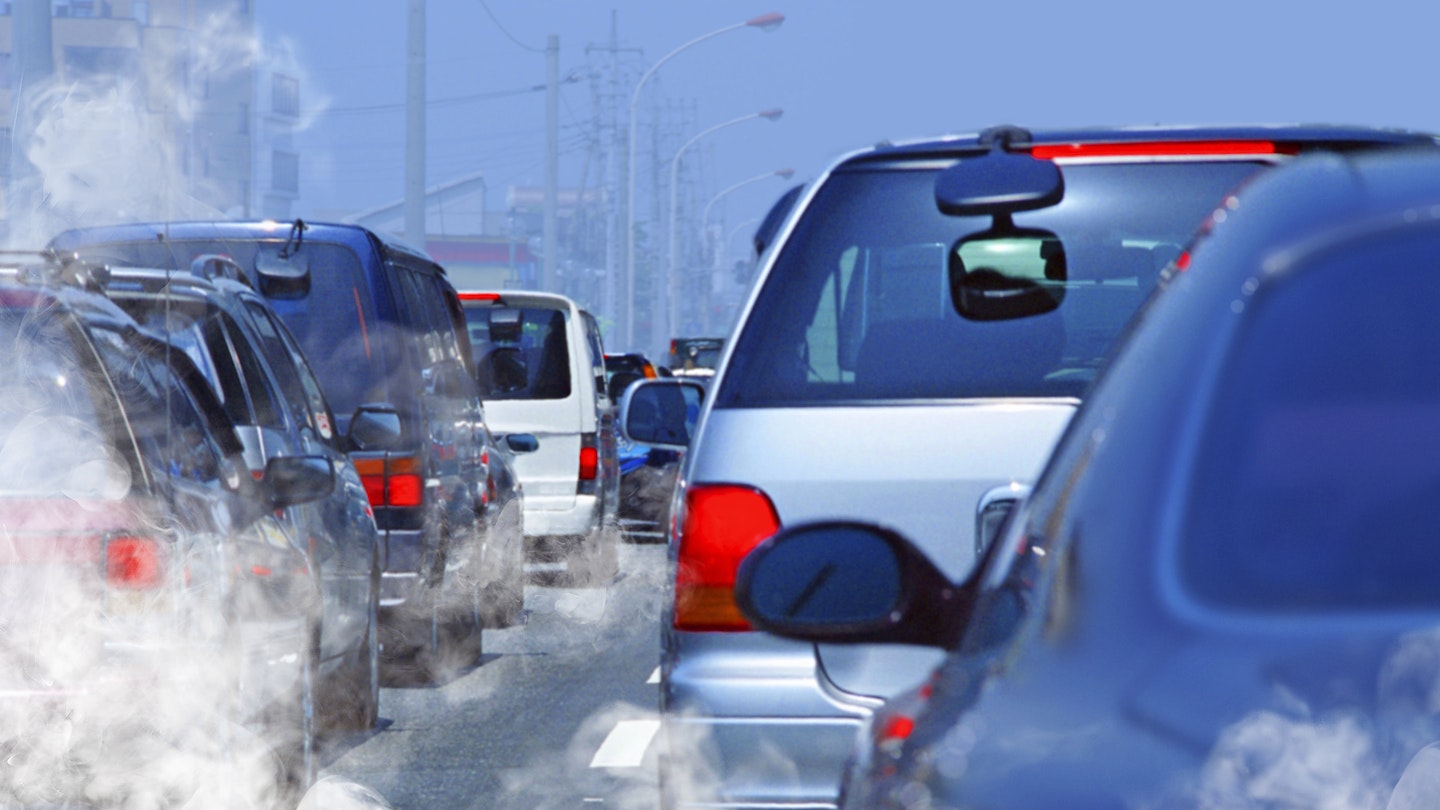Are you planning to smoke 150 cigarettes this year? Your answer might be no, yet the British Heart Foundation warns that air pollution in the worst-hit areas of the UK is just as deadly.
In fact, air pollution is linked to 36,000 premature deaths in the UK each year.
It can increase your chances of having a heart attack or stroke, cause new lung conditions like lung cancer, and worsen existing conditions such as asthma or chronic obstructive pulmonary disease (COPD).
It’s also been found to stunt the growth of children’s lungs, making them less resilient in later life.
Jessica Kirby, head of health advice at Asthma UK and the British Lung Foundation, says: ‘Air pollution tends to be much worse in towns and cities where there are more vehicles on the roads.
‘According to leading experts at the World Health Organisation, there are no safe levels of air pollution to breathe. However, for people living in more polluted areas, there are several practical steps you can follow to reduce your exposure.’

Here we explore how:
Exercise indoors
We all know that being physically active is good for us. But if we’re doing a strenuous work-out on a day when air pollution is high, we could be breathing in more polluted air.
Jessica explains: ‘Exercise has many benefits for people with lung conditions, so it’s important to keep doing it.
‘However, on high pollution days, consider exercising indoors in a well-ventilated room or at your local gym, to avoid breathing high levels of pollution deep into your lungs.’
Leave home earlier and plan your route
Jessica says: ‘Try to travel to work or school before rush hour has begun and air pollution has built up. Remember, pollution levels can be even higher inside a car than outside, so leaving earlier will also allow more time for you to complete your journey on foot, by bike or on public transport, rather than using your car.
‘If you can, plan your route so you can choose quieter streets and avoid main roads and busy junctions, where air pollution tends to be much higher.’
Improve your diet
Do you always manage your five-a-day? If not, there’s yet another reason to increase your intake of foods such as blueberries, strawberries, spinach and kale.
Regina Giblin, senior cardiac nurse at the British Heart Foundation, says: ‘Research suggests that eating a diet high in antioxidants, found mostly in fruit and vegetables, could help defend you against certain pollutants, making you less susceptible to the negative effect of air pollution.’
Walk on the inside of the pavement
‘The further you are from the traffic, the lower the pollution levels are,’ says Jessica. ‘So walk on the inside of the pavement, particularly if you’re walking with children.
‘Young children breathe faster than adults and inhale air closer to the ground at exhaust-pipe level, particularly if they’re in a pushchair. Keep them as far away from traffic as possible.’
Monitor levels
Jessica says: ‘One of the most important things you can do to help protect yourself, is to keep track of air pollution levels in your area. That way you can do what’s needed to reduce your exposure when levels are high, such as keeping your windows closed or spending less time outdoors.’
Take your medication
‘If you have a lung condition, high levels of pollution can worsen your symptoms and trigger life-threatening asthma attacks or COPD exacerbations,’ says Jessica.
‘If you have asthma, take your preventer inhaler regularly. It reduces the inflammation in your airways so that if you come into contact with something that triggers asthma symptoms, such as pollution, you’re less likely to have an asthma attack.
‘Also, always carry your reliever inhaler with you, so you can use it quickly if you get asthma symptoms.’
Play your part
According to Jessica, we can all play a part in reducing air pollution: ‘Think about when you can walk, cycle or get public transport for shorter journeys, rather than relying on your car.’
To sign the British Lung Foundation petition calling for new laws to stamp out air pollution, visit: blf.org.uk and search for ‘take action now’.
For information on the impact of air pollution on the heart, visit bhf.org.uk, and if you need to monitor air pollution, visit uk-air.defra.gov.uk
Edited by Stephanie May
